Take some housekeeping advice from the pros — there really is a right way and a wrong way to clean your house.
Our editors and experts handpick every product we feature. We may earn a commission from your purchases.Learn more.
Take some housekeeping advice from the pros — there really is a right way and a wrong way to clean your house.
Our editors and experts handpick every product we feature. We may earn a commission from your purchases.Learn more.
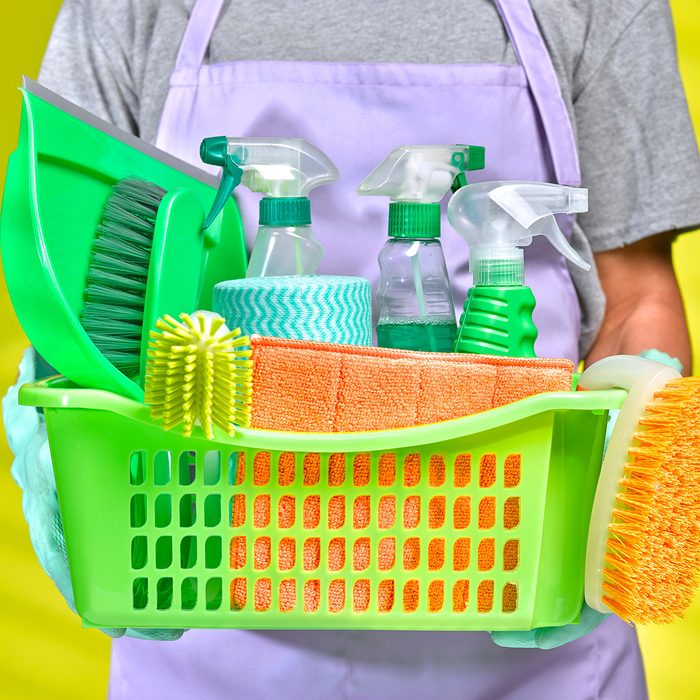
If you’ve ever hired a professional housecleaner or watched as hotel housekeeping staff quickly tidied a room, you’ve probably been amazed at how fast they can get things squeaky clean. It comes from years of practice, of course, but also because they know the quickest, safest ways to clean thoroughly and efficiently.
So we asked some housekeeping pros to share a few of those secrets — especially things they would never do when it comes to cleaning their homes.
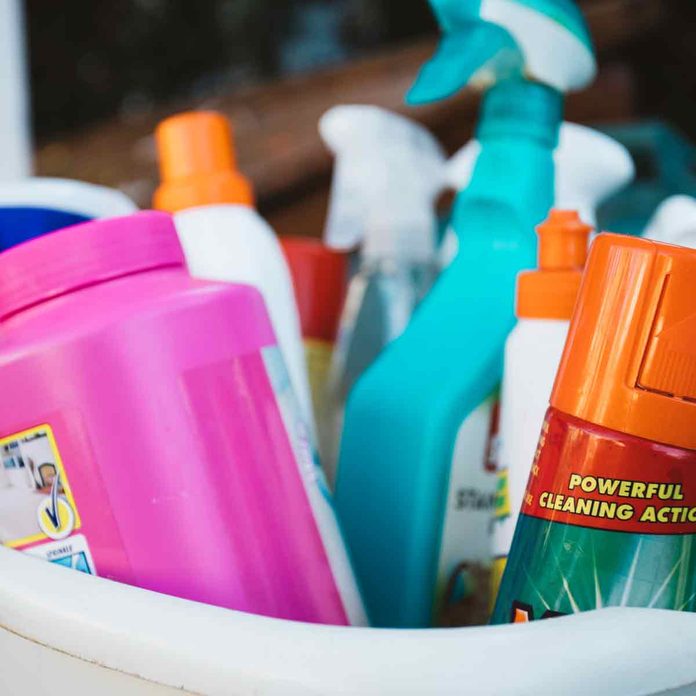
Most people are aware that bleach and ammonia are a dangerous combination. They produce chloramine vapor, or mustard gas, which can be fatal if inhaled.
But you should also keep bleach far away from oven cleaner, lemon juice, dish detergent and basically every other household cleaning product. And mixing different brands of drain cleaners could literally cause your sink to explode. A less lethal chemical combination that can still damage surfaces? Hydrogen peroxide and vinegar.

We know. Pet hair is a beast to clean. But if you’re cleaning all the surfaces of your home and ignoring the accumulation of pet hair on the couch, pillows, beds (pet and human) and the other surfaces it clings to, well, sorry, but you’re just pretending to have a clean house.
If shedding pets are part of your life, invest — and it is an investment — in a vacuum cleaner specially designed to deal with pet hair. Here are our picks for the best vacuum cleaners for pet owners.
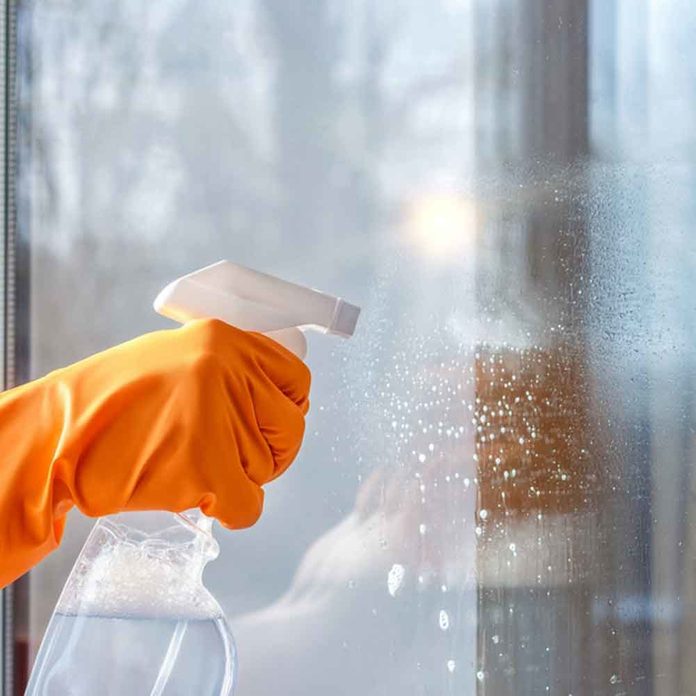
Once glass is scratched or clouded, there’s no turning back. That’s why Window Genie doesn’t recommend any acidic cleaners for glass. So while it’s tempting to hit the bathroom mirror with the same scrubby or cleaner you just used on the sink, well, don’t.
Flax says stick to cleaners specially formulated and labeled for use on glass, “or simply use a mixture of dish soap and water, or vinegar and water.” (Note that while vinegar is an acid, once it’s mixed 1:1 with water, the acid is safely diluted.)
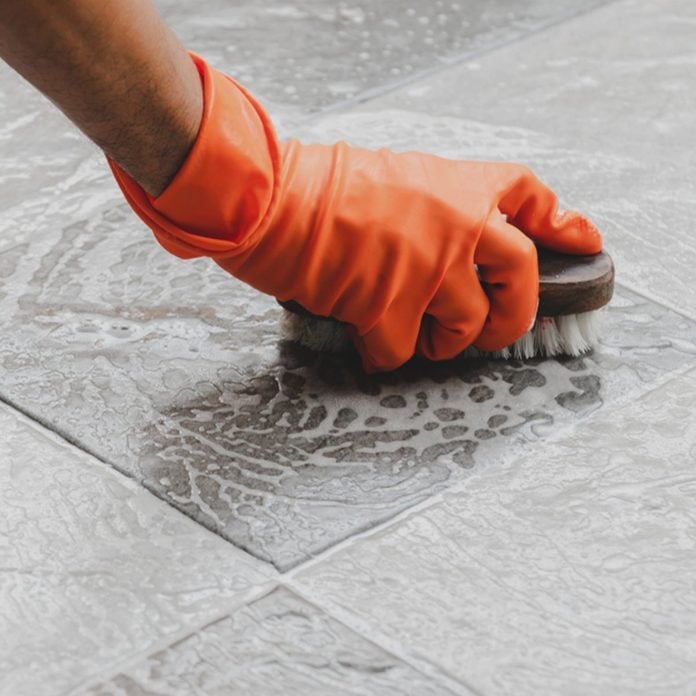
According to James Conner, vice president of operations at Molly Maid, this is the No. 1 housekeeping no-no. “When working with harsh chemicals,” he says, “the most important step of the cleaning process is to wear rubber gloves and properly ventilate the area by opening doors and windows or turning on fans if possible.” When working with caustic cleaning products, you may even want to put on goggles and a mask.
Conner says that even natural or mild cleaning products can irritate skin, eyes and lungs. So don’t take shortcuts when it comes to your health. Glove up, and clean in a well-ventilated area.
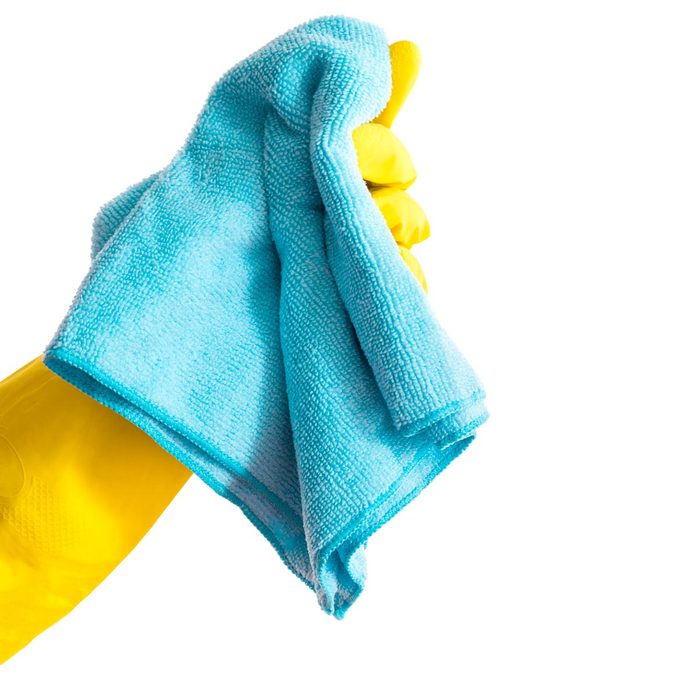
Turns out it’s wasteful to spray cleaning products directly onto furniture, mirrors, cooktops and more. Conner says you’re essentially wasting the product, since you’re likely spraying more than you need. It can also lead to build-up, which leaves surfaces looking foggy. “Instead, spray cleaning solutions onto a microfiber cloth first,” he says. “Then wipe surfaces clean.”
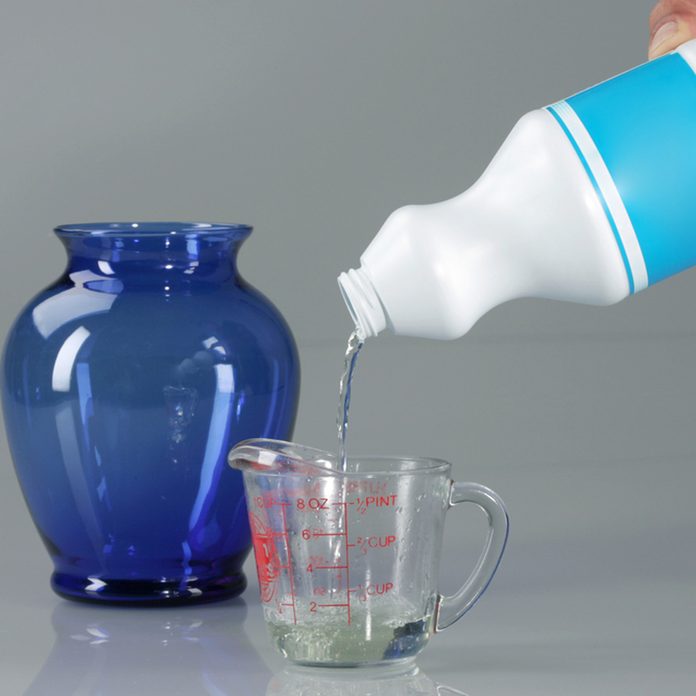
Bleach is one of the most over-used and misused cleaning products in the home, Connor says. And it’s not nearly as “all-purpose” as people might think. “It’s great for disinfecting bath toys, toilets and showers,” he says, “but it should never be used on colored upholstery or finished wood as it can discolor or strip these surfaces.”
Bleach doesn’t do much to cut grease, either. So if you’re using it to degrease kitchen surfaces, you’re wasting your time. And while restaurants may use diluted bleach solutions for industrial-level cleaning, in the home consider keeping this chemical away from surfaces where you prepare food. Save it for occasional (and well-diluted) disinfecting.
If your home uses a septic system, remember that too much bleach will kill the beneficial bacteria in your tank.
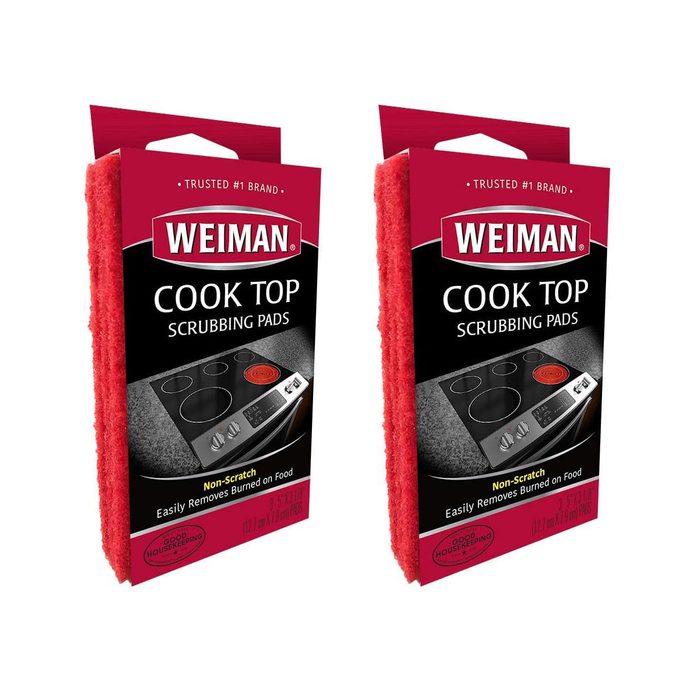
Marks on your glass oven door or cooktop may be stubborn, but you still need to be gentle with those easy-to-scratch glass surfaces. David Flax, vice president of operations for Window Genie, tells us the best tools to use on glass are microfiber cloths or squeegees. “Both tools will remove the cleaning solution and debris gently and effectively, and won’t just spread the water or cleaner around,” he says.
Never use anything abrasive — like paper towels, believe it or not! — to scrape contaminants off glass, as glass is so easily scratched. Flax suggests special glass-specific scrub pads for stubborn stains.
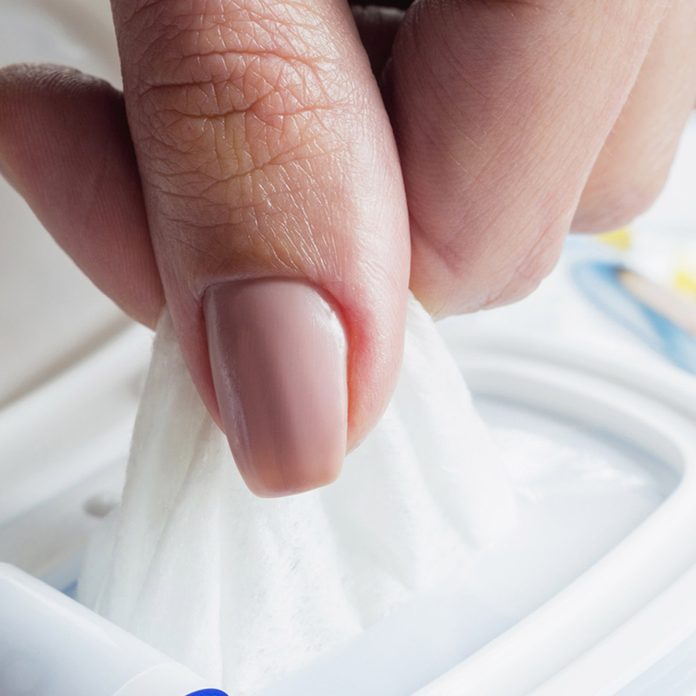
Think about the surfaces you touch the most during the day — apart from your cell phone (which is probably also filthy, by the way). Light switches, doorknobs, fridge door handles, cabinet knobs and drawer pulls — are you giving these a sanitizing wipedown when you clean?
Keep a pack of sanitizing wipes handy to hit those high-touch surfaces, especially during cold and flu season. There’s likely no need to regularly sanitize too far beyond that, however, as studies show that over-sanitizing can lead to hard-to-kill germs.
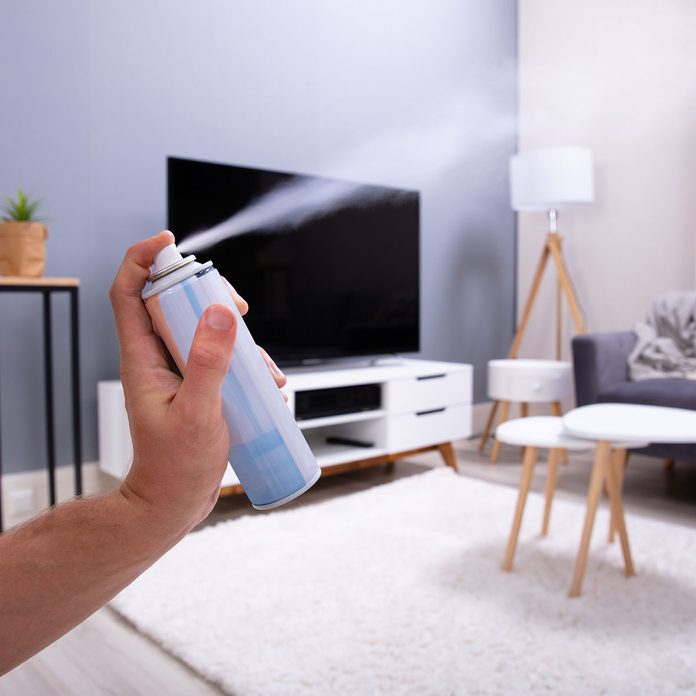
“Most people know the trick of cleaning each room top to bottom,” Molly Maid’s Conner says. That technique knocks down dust that you vacuum up at the end. But he says there are other factors to consider when tackling a whole-room cleaning project.
If you spray room freshener after you’ve dusted, vacuumed and mopped, for example, you’re doing it in the wrong order. “These room sprays can actually leave a sticky or greasy film on floors and counters,” says Conner, “so it’s recommended that you use them towards the middle of your process, before you’ve wiped and mopped.”
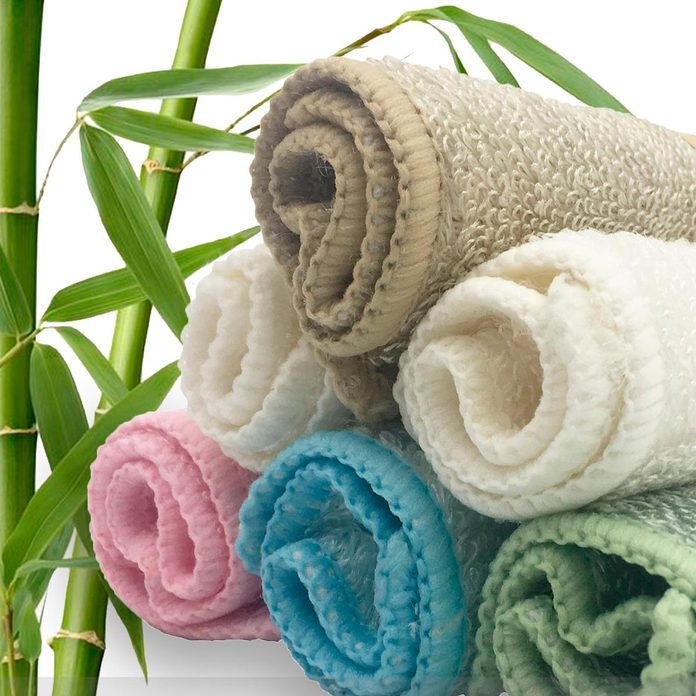
There are some things that just shouldn’t mix, especially when it comes to bathrooms and kitchens. Dedicate a set of cleaning rags, brushes and other supplies just to the bathroom, Conner says.
We’d go so far as to say keep a separate set of rags and wipes for the kitchen as well. There’s no point introducing greasy food dirt onto living room surfaces, just as there’s no point bringing dog hair from the couch into the kitchen.